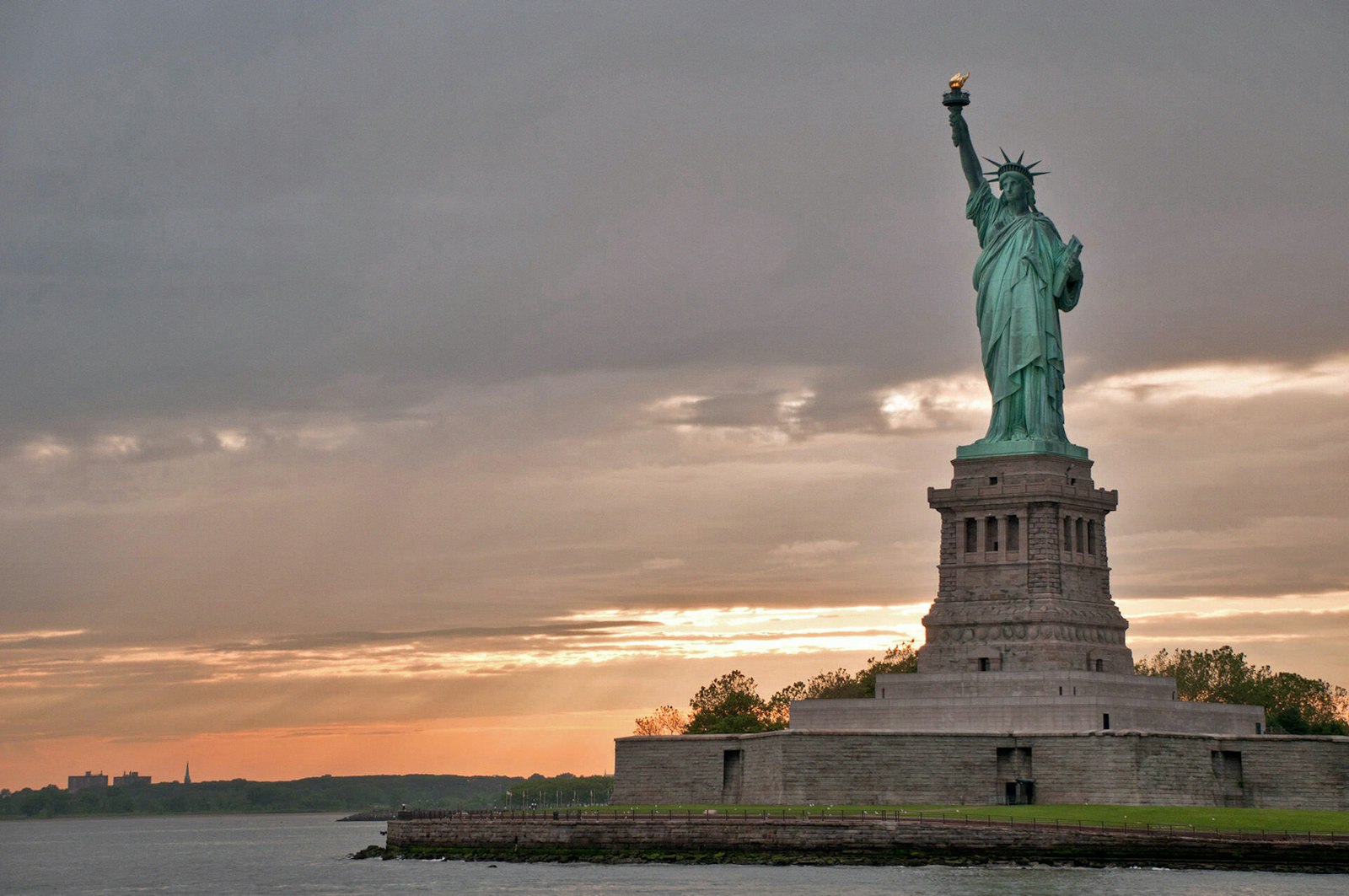
In a bold and controversial statement, French Socialist MEP Raphaël Glucksmann has called for the return of the Statue of Liberty to France, claiming that the United States no longer embodies the values that led to the statue’s original gift. This striking comment was made during a convention of his Place Publique movement, where Glucksmann voiced his frustration with the United States under the leadership of President Donald Trump, accusing the country of straying far from the principles that originally bonded the two nations.
"Give us back the Statue of Liberty," Glucksmann declared to an audience of enthusiastic supporters. He went on to accuse the United States of siding with "the tyrants," referencing Trump's foreign policies that have stirred global outrage, particularly in relation to his interactions with authoritarian regimes.
The Statue of Liberty, a gift from France to the U.S. in 1886, has long been a symbol of freedom, democracy, and the strong transatlantic bond between the two countries. However, Glucksmann now contends that this symbol has been tarnished by America's current direction under Trump's administration.
Raphaël Glucksmann’s remarks were aimed at criticizing the U.S. for abandoning these core values. He singled out the treatment of scientists and researchers within the country, particularly those fired or silenced for advocating for scientific freedom and environmental protection.
"We're going to say to the Americans who have chosen to side with the tyrants, to the Americans who fired researchers for demanding scientific freedom: 'Give us back the Statue of Liberty,'" he said, igniting cheers from his supporters.

Glucksmann's comments reflected a growing frustration in France, particularly among left-wing politicians and activists, who view the Trump administration's stance on issues such as climate change, immigration, and international diplomacy as a betrayal of democratic ideals. The Statue of Liberty, which was intended to represent a shared commitment to liberty and justice, is now seen by some as a symbol of disillusionment with the U.S.'s departure from these values.
The symbolism of the Statue of Liberty has been a topic of intense discussion in recent years, especially as political tensions have escalated between the U.S. and other countries. To many, it remains a reminder of the friendship and mutual respect between France and America.

But for Glucksmann and others, it has become a symbol of the betrayal of those ideals by the current American leadership. In his view, if the United States no longer respects the values for which the statue was given, it would be better suited to return it to its rightful home.
“We gave it to you as a gift, but apparently, you despise it. So it will be just fine here at home," Glucksmann declared. His statement echoed the sentiment of many who feel that the statue, which represents freedom and justice, no longer has a place in a country they perceive as having strayed from these very principles.
The statue itself, towering over the New York Harbor, has always stood as a beacon of hope for immigrants arriving in the United States, a symbol of the promise of a better life in a land of freedom. For many, it is an emblem of the U.S.'s historical commitment to liberty and human rights.
However, as political divisions have deepened in recent years, some have come to see it as a monument to ideals that no longer align with the policies and rhetoric of the U.S. government.

While Glucksmann’s remarks may be seen as an exaggeration or an act of political theater, they underscore a deeper disillusionment with the state of U.S.-French relations and with the way in which the United States is currently projecting its influence on the world stage. The call for the return of the Statue of Liberty is not merely about the statue itself but about a profound disagreement over what the statue represents.
It serves as a reminder of the values of equality, democracy, and freedom, and many feel that the U.S. has lost its way in upholding those values.
Critics of the U.S. administration will likely see Glucksmann’s call as a symbolic act of reclaiming what was once a cherished emblem of Franco-American friendship. It is also a call for the world to reconsider the role of the U.S. in global affairs, particularly in light of recent policies that have been viewed by many as divisive and harmful.
For those who agree with Glucksmann’s stance, the return of the statue would be a powerful symbol of resistance against a political climate that they perceive as hostile to the very ideals that the statue was meant to represent.
In the end, whether or not the U.S. will ever return the Statue of Liberty to France is a matter of international diplomacy and symbolism. However, Glucksmann’s comments are likely to fuel ongoing debates about the future of U.S. democracy and the role that the Statue of Liberty will continue to play in the hearts and minds of those who believe in the universal values of freedom and justice.

-1748324579-q80.webp)


-1746253351-q80.webp)